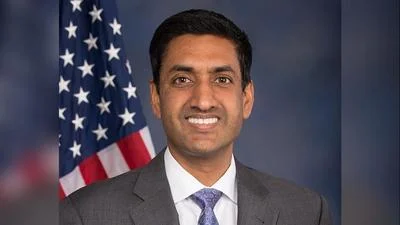John Taylor, Professor of Economics at Stanford University and developer of the "Taylor Rule" for setting interest rates | Stanford University
John Taylor, Professor of Economics at Stanford University and developer of the "Taylor Rule" for setting interest rates | Stanford University
The Stanford Board of Trustees has approved a resolution reaffirming the university’s commitment to free inquiry, the avoidance of institutional orthodoxy, and the open exchange of ideas. This action coincides with the 50th anniversary of the 1974 board adoption of Stanford’s Statement on Academic Freedom.
The resolution commends the Faculty Senate for adopting in May this year a Statement of Freedom of Expression and an Institutional Statements Policy, both aimed at complementing and strengthening Stanford’s principles of academic freedom.
“IT IS HEREBY RESOLVED the Board of Trustees of the Leland Stanford Junior University, on the fiftieth anniversary of the adoption of Stanford’s Statement on Academic Freedom, reaffirms the principles of academic freedom and the avoidance of institutional orthodoxy, and furthermore commends the Faculty Senate for its recent adoption of the Statement on Freedom of Expression at Stanford and Institutional Statements Policy.”
Board Chair Jerry Yang stated, “Stanford remains steadfast in its dedication to academic freedom, which serves as a key foundation for the university’s truth-seeking scholarship and impactful research. We are immensely grateful for the Faculty Senate’s deliberations earlier this year on this critically important issue, which benefits our entire university community and beyond.”
Stanford’s Statement on Academic Freedom was initially adopted by the Faculty Senate in 1974 after extensive deliberation with several faculty committees. The statement includes a preamble recognizing that Stanford’s “central functions of teaching, learning, research, and scholarship depend upon an atmosphere in which freedom of inquiry, thought, expression, publication, and peaceable assembly are given the fullest protection.” It further states that “expression of the widest range of viewpoints should be encouraged, free from institutional orthodoxy and from internal or external coercion.”
Former law school dean Professor Emeritus Paul Brest played a key role in drafting this statement as an assistant professor. Brest remarked, “Academic freedom – especially the 1974 statement’s prohibition of ‘institutional orthodoxy’ – was of critical importance in the university’s response to campus protests over U.S. involvement in Vietnam in the early 1970s, and it is no less important today.”
In 2023, responding to renewed concerns about speech on campus, an Ad Hoc Committee on University Speech was convened by the Faculty Senate to review constraints on academic freedom and make recommendations. After consulting extensively with community members and examining governing documents related to speech at Stanford, they presented their final report.
In May this year, following these consultations, the Faculty Senate adopted a new Statement on Freedom of Expression at Stanford emphasizing commitment to free inquiry and open exchange. They also approved an Institutional Statements Policy advising leaders to avoid expressing opinions on political controversies not directly affecting university mission.
Bernadette “Bernie” Meyler chaired this Ad Hoc Committee. Meyler noted: “We envisioned these as complements to the existing 1974 Statement on Academic Freedom... When matters of such core institutional value are at stake, it is crucial that many constituencies across the university coalesce around them.”
Meyler will serve as a special advisor to clarify policies connected to these new statements during this academic year.




 Alerts Sign-up
Alerts Sign-up